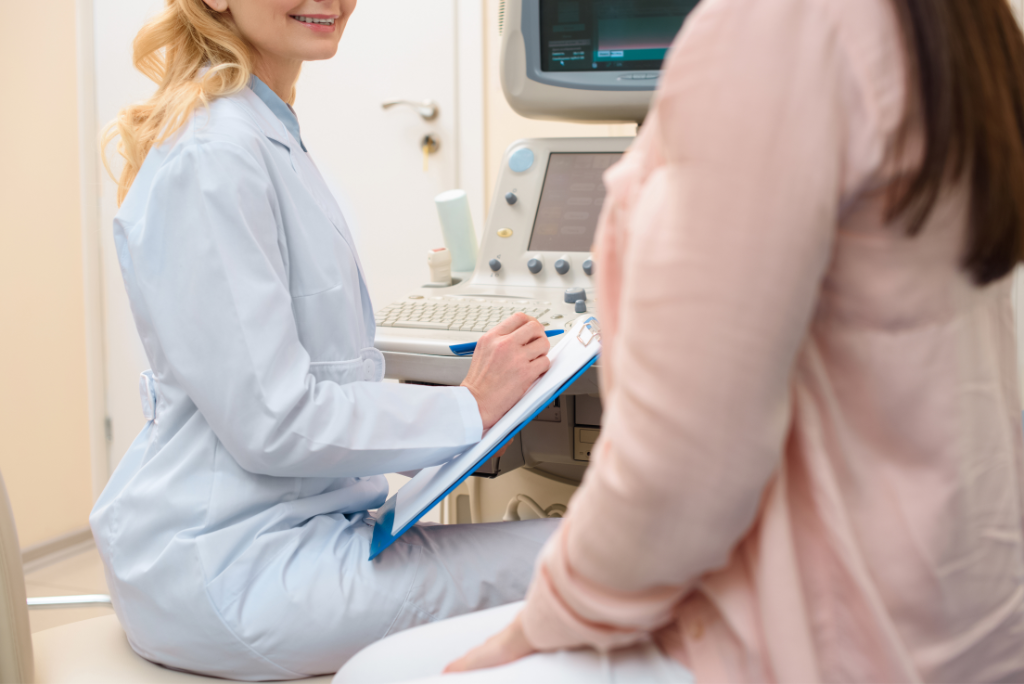All women should prioritize their reproductive health. Your reproductive system is responsible for many critical bodily functions, so taking care of it is crucial. One of the best ways to ensure that you’re healthy is by scheduling regular visits with your gynecologist.
A gynaecologist specializes in women’s reproductive health, which includes treating conditions like pregnancy, childbirth, contraception, fertility, menopause, and others. Seeing your gynaecologist regularly is essential because they can help you detect and manage any issues early on. But, what to ask? Here are 10 questions to ask your gynecologist at your next appointment.
1. Birth control: what are the options?
Birth control is a way to prevent pregnancy using various methods. There are many types of birth control available, each with its advantages and disadvantages. Some of the most common options include:
- Hormonal methods: These include pills, patches, injections, implants, and intrauterine devices (IUDs) that release hormones to prevent ovulation or thicken the cervical mucus.
- Barrier methods: These include condoms, diaphragms, cervical caps, and spermicides.
- Natural methods: These include fertility awareness, withdrawal, and abstinence.
There’s no one-size-fits-all when it comes to birth control. Your gynaecologist can help you find a contraceptive method that works best for you and your lifestyle.
2. How to do family planning?
Family planning helps you and your partner have the number of children you want when you want. There are many options for women to plan their pregnancies, some of which include:
- Contraceptive methods: These are ways to prevent pregnancy using devices, medications, or procedures.
- Natural family planning: This is a way to track the fertile days of a woman’s menstrual cycle and avoid sexual intercourse or use a barrier method on those days.
- Emergency contraception: A pill inserted as an IUD within 72 hours after having unprotected sex or contraceptive failure.
To learn more about the benefits and risks of each option and choose the one that suits you best, ask your gynecologist.
Find here a full list of contraceptive methods by the WHO
3. What screening tests do I need to track my gynaecological health?
Gynaecological screening tests are procedures that help detect and prevent diseases affecting the female reproductive system. These tests are crucial for women’s health because they can find diseases at an early stage when they are easier to treat and have better outcomes. Some of the most important preventive screening tests for women, as the MSD Manual explains, are:
- Cervical cell testing (cytology)
- Papanicolaou (Pap) test
- Human papillomavirus (HPV)
- Sexually transmitted infections (STIs) screening
Read here to know more about screening tests for women.
4. “My period is irregular” What should I do?
Many women experience menstrual irregularities at some point in their lives. An irregular period is when the length of your menstrual cycle varies from month to month, or when you have more or less bleeding than usual. According to NHS, these abnormalities in your period can be caused by various factors, such as:
- Stress
- Exercising too much
- Pregnancy
- Menopause
- Polycystic ovary syndrome (PCOS)
- Hormonal contraception (pills, injections or intrauterine systems)
If this is a persistent condition, you should go and see a gynaecologist.
5. How do I make my period less painful?
Feeling bloated, heavy, and achy is typical of the menstrual cycle. In most cases, menstrual pain lasts up to three days and can interfere with your daily activities. There are several methods and tips to relieve period pain. NHS also shares a few of them:
- Take a warm shower
- Use a heating pad or hot water bottle wrapped in a tea towel on your stomach
- Massage your tummy and back
- Try low-impact exercises like yoga, swimming or walking
- Use painkillers like ibuprofen or the ones that work for you
In addition to the above tips, try reducing alcohol consumption and quitting smoking during menstruation; this may help alleviate the pain.
6. How do I know if I’m a fertile woman?
According to the American Pregnancy Association, the cause of approximately 50% of infertility cases can be attributed to male factors; however, both partners must be examined for the possibility of infertility.
The first step in diagnosing female fertility is a comprehensive appointment with your gynaecologist. At this appointment, the doctor will ask about contraceptive use, menstrual and pregnancy history, current and past sexual practices, and more about your lifestyle and medical history.
Then, a physical exam, a pelvic exam, and a pap smear follow. Finally, an ovulation evaluation is performed to make sure that your ovulation, ovarian function, and uterine function during the ovulation process are occurring as they should. This evaluation is performed using ovulation predictor kits, blood tests, and ultrasound.
Learn more about fertility tests for women.
7. What are the symptoms of menopause?
Menopause is a natural biological process that marks the end of a woman’s reproductive years. It is a significant phase in a woman’s life that typically occurs between the ages of 45 and 55. During this stage, a woman’s body goes through a variety of physical and emotional changes.
The severity and duration of symptoms can vary greatly from woman to woman. Some of the most common symptoms experienced during menopause, according to the Office of Women’s Health, include:
- Hot flushes: This is the most common symptom of menopause. Approximately 3 out of 4 women experience hot flushes before and during menopause.
- Vaginal problems: Low estrogen levels during menopause can lead to problems like vaginal dryness, causing discomfort, itching, and pain during sexual intercourse.
- Sleep disturbances: Hormonal changes can disrupt sleep patterns, making it difficult to fall asleep or stay asleep, leading to exhaustion and daytime fatigue.
- Urinary problems: Having low estrogen levels can weaken the urethra. As a result, it can be difficult for women to hold their urine long enough to get to the bathroom (urinary urge incontinence).
- Mood changes: An irregular estrogen cycle can have a profound effect on a woman’s mood, leading to irritability, depression, and anxiety.
- Changes in Sexual Function: Sexual desire, arousal, and overall sexual satisfaction may be affected by low estrogen levels. Some women may also experience decreased vaginal lubrication.
Check a full list of symptoms of Menopause.
8. How to prevent Sexually Transmitted Infections (STIs)?
Sexually transmitted infections (STIs) are infections that can be passed from one person to another through sexual contact. The World Health Organization (WHO) states more than 1 million STIs are acquired every day. The good news is that STIs are preventable. There are steps you can take to protect your sexual health:
- Condoms: This is one of the most effective methods of protection against STIs, including HIV.
- Vaccines: Vaccines against genital herpes and HIV are at an advanced stage of development, with several candidates already in clinical trials.
- Biomedical interventions: These methods include voluntary medical male circumcision, microbicides, and partner treatment.
- Get tested regularly: The only way to know for sure if you have an STI is to get tested. Talk with your healthcare provider about which tests you need and how often you need them.
- Abstinence: The surest way to avoid STIs is to not have sex. This means refraining from vaginal, oral, or anal sex.
Keep learning about STI prevention
9. What is breast cancer screening?
Breast cancer screening is a method that uses multiple tests to detect cancer before symptoms or signs appear. Screenings can be applied in several ways; however, they all share the same goal: detect cancer at an earlier stage, making it more curable.
Getting breast cancer screening is the best way to prevent complications of the disease. Women over 40 years old are in a high-risk group; however, breast cancer can be even more serious in younger patients, as it could behave more aggressively.
Some types of cancer have their screening tests, but the three main methods are:
- Self-exam
- Mammogram
- Ultrasound
Learn more about the Early Detection of Breast Cancer
10. How should I do the self-exam?
Self-exams are the best way to perform breast cancer screening at home. During this self-examination, you look for changes in your breasts through touch and sight.
If you don’t know how to do it, here are the steps to perform a self-exam explained by the National Breast Cancer Foundation:
- Stand in front of a mirror and look at your breasts. Notice their shape, size, colour, and texture.
2. Raise your arms above your head and look at your breasts again. Look for any dimpling, puckering, redness, swelling, or rash.
3. Lower your arms and place them on your hips. Press firmly and flex your chest muscles.
4. Next, feel your breasts while lying down. Use your right hand to examine your left breast, and your left hand to examine your right breast. Apply different levels of pressure to feel the different layers of tissue.
5. Finally, feel your breasts while standing or sitting. Follow the same steps as before, using one hand to examine the opposite breast.
(Don’t forget to check your armpits and collar bone, too!)
As you can see, women’s reproductive and breast health requires careful attention. To stay on top of your health, prevent conditions, and detect others early, choose a medical partner to guide you along the way. At DaVinci Health, we offer you comprehensive gynaecology services, breast cancer screening and more specialities.
Our private clinic in Malta has the most modern equipment and a team of medical experts who will advise you on everything you need. Book your appointment and put these questions into practice!


